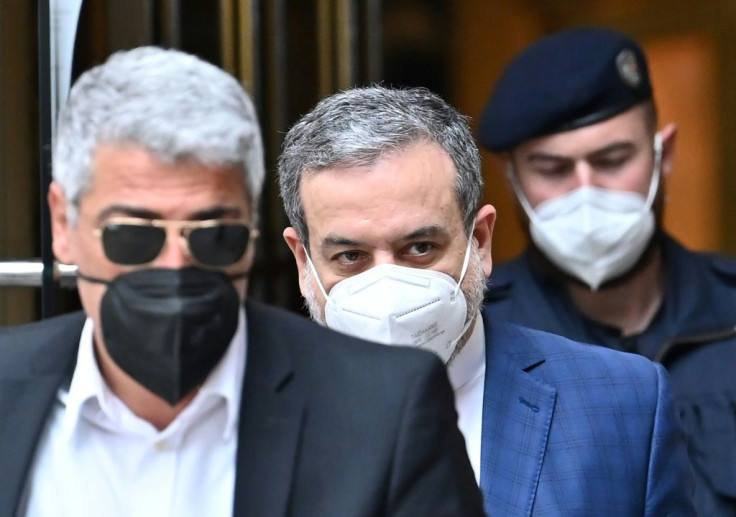'New Energy' At Iran Talks As Diplomats Reconvene
The fourth round of talks between world powers on Iran's nuclear programme opened in Vienna on Friday, with diplomats voicing hope of progress towards an agreement in the coming weeks.
Diplomats from the remaining parties to the 2015 Iran nuclear deal -- Britain, China, France, Germany and Russia as well as Iran, held talks for about an hour at a luxury hotel in the Austrian capital.
The leader of Iran's delegation at the talks, Deputy Foreign Minister Abbas Araghchi, hailed the "new energy" and "seriousness of all sides" at the talks.
The Russian ambassador to the UN in Vienna, Mikhail Ulyanov, tweeted that "the delegations seem to be ready to stay in Vienna as long as necessary to achieve the goal".
The EU is co-ordinating the talks and an official from the bloc said that the latest round "should probably be a longer round than the three before because... by now everybody has an idea of how the agreement would look".
The aim of the talks is a return to full compliance with the 2015 accord, known as the JCPOA, which has been slowly disintegrating since former US president Donald Trump withdrew from it in 2018 and Tehran responded by breaking the deal's limits on its nuclear activities.
Trump's successor Joe Biden has said he wishes to rejoin the JCPOA, and an American official said on Thursday an agreement was "possible" in the coming weeks, before Iran's June 18 election.
The US is taking part in the talks indirectly, with European diplomats acting as intermediaries between the Americans and Iranians.
The talks are seeking to find a way to lift sanctions on Iran reimposed by Trump, and for Iran to come back into line with the JCPOA's limits on its nuclear activities.
After Friday's meeting, experts from the various delegations carried on meeting in working groups, according to an EU spokesman.

Araghchi told Iranian public television that he hoped the talks could reach a conclusion "in the shortest time possible".
According to Araghchi, the Americans "have expressed readiness to lift a large part of their sanctions" but added that they had not yet gone far enough.
He also rejected suggestions that the Iranian presidential election was affecting the timescale of the talks, saying the vote was "an important issue in the country, but it has nothing to do with" the negotiations.
Another potential source of time pressure is the looming expiry of a three-month agreement between Iran and the UN nuclear watchdog, the International Atomic Energy Agency (IAEA).
The agreement announced in February allows the IAEA to maintain a level of oversight of Iran's nuclear facilities despite Tehran's suspension of some inspections by the body.
Under the agreement, Iran pledged to keep camera data -- recordings "of some activities and monitoring equipment" -- and hand them over to the IAEA as and when US sanctions are lifted.
IAEA Director General Rafael Grossi met Araghchi on Thursday, with Iran's ambassador in Vienna saying they had discussed issues of mutual interest.
In an interview last week with Bloomberg TV, Grossi expressed concern that Iran would destroy the camera data if an agreement was not reached in time, adding: "Let's hope it hasn't happened."
He said that if the temporary agreement expired and the broader diplomatic talks remained stuck, he would return to Tehran to try to broker another compromise.
© Copyright AFP 2024. All rights reserved.





















